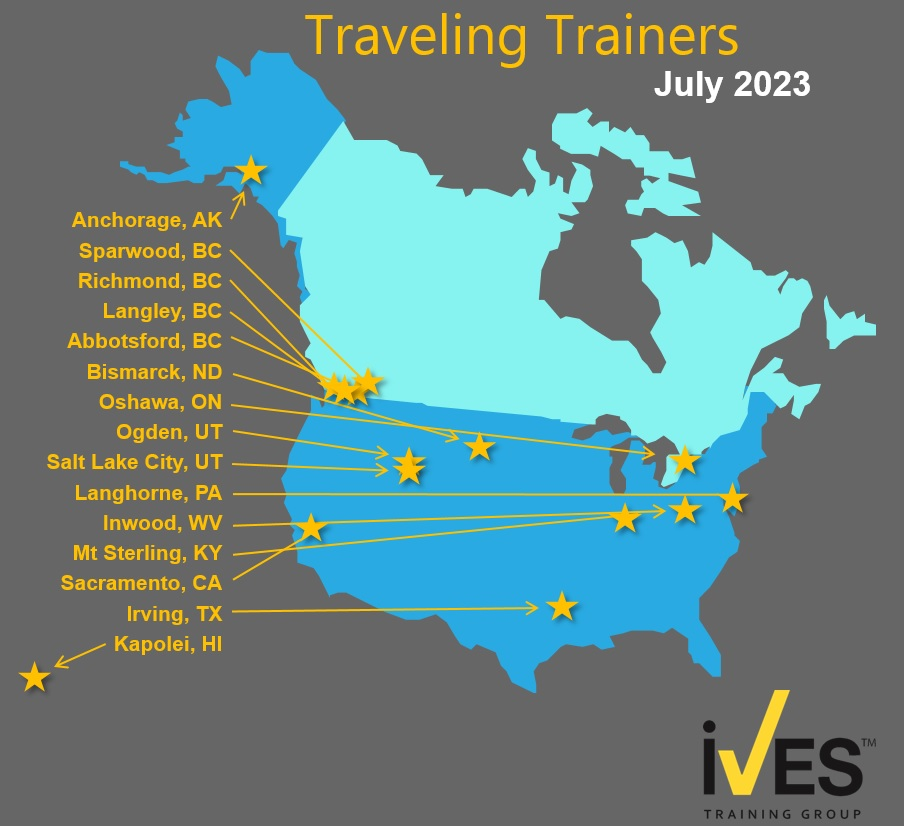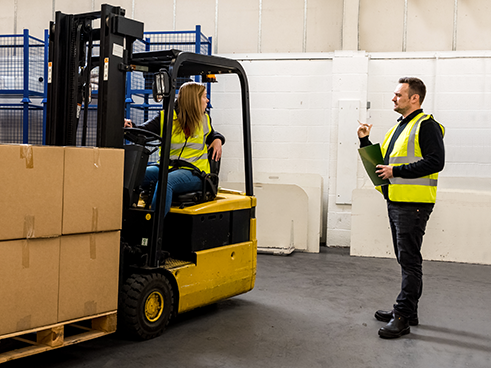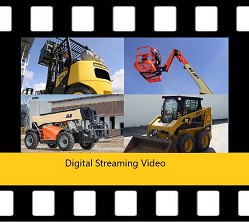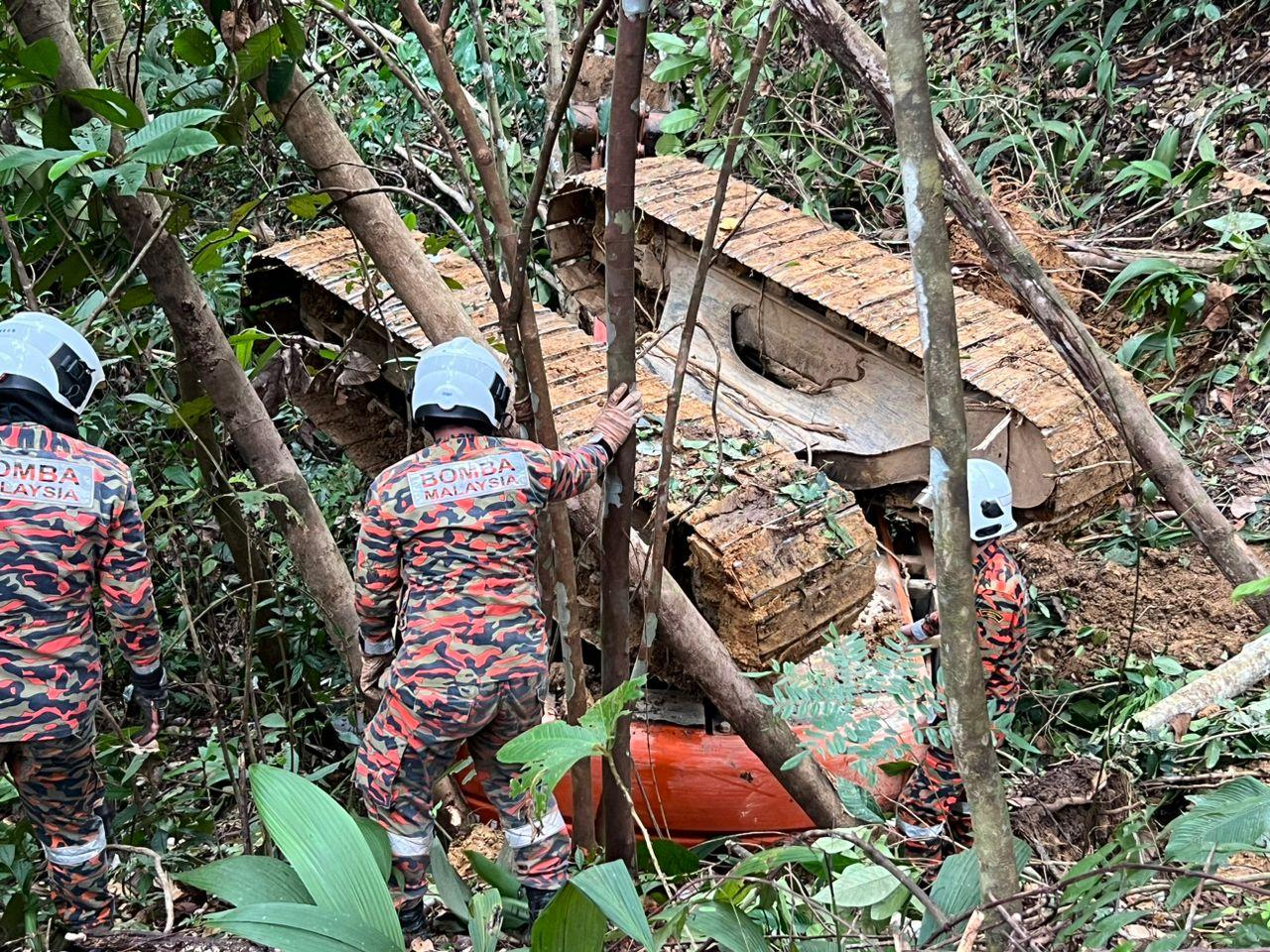
The IVES Update Newsletter is a highly informative monthly e-newsletter. It contains up-to-date industry information, regulatory updates, stories from the field, upcoming program dates, What’s Wrong With This? photos, incident reports, our interactive “Ask Bob” question and answer column, new product details and much more.
Whether you're interested in forklifts, mobile elevating work platforms, loaders or excavators – we’ve got you covered. Want to receive it directly to your inbox? Sign up for our IVES Update e-Newsletter!
Year:
Check out our latest news: Feature Article: Enforce safe systems of work, Incident Report: OSHA fines shipping company $380k USD for safety violations, a question about operator re-certifications, interesting articles, and testimonials from our wonderful customers!
But first, check out all the places we are delivering training this month...

 “This incident could so easily have been avoided by simply carrying out correct control measures and safe working practices.”
“This incident could so easily have been avoided by simply carrying out correct control measures and safe working practices.”
These are words we read all too often in the UK, quoting inspectors from the Health & Safety Executive (HSE) after an accident has occurred. But they could apply to almost every forklift accident in every country around the world.
Carrying out risk assessments and developing the findings into Safe Systems of Work (SSOW) should be standard practice. Together, they deliver a defined set of rules around each aspect of an operation and, in doing so, will minimise the risk of accidents.
Sounds simple, doesn’t it?
Sadly, however, not all companies have them, and even those that do don’t always ensure that they are effective and enforced.
The fact is that SSOW have the potential to save lives. Without them and, crucially, the enforcement measures to deliver them, employees will operate at their own discretion.
Even though an operator may have received the required training, human nature means that complacency can soon creep in, leading to a host of bad habits. Left unchecked, they can have severe consequences.
A recent UK survey, perhaps indicative of the wider global picture, revealed some shocking insights into safety culture. Almost one third of those surveyed indicated that their forklift operators are either unaware of their company’s Safe Systems of Work, don’t understand them, or simply ignore them.
A further 10% said they didn’t have a Safe System of Work in place at all.
Being proactive is key when it comes to forklift safety. The risk of accidents can be massively reduced if SSOW are established, clearly communicated and continually enforced.
Those SSOW should provide clear guidance for forklift operators on how they should work, and the importance of following safety measures, regardless of their own attitudes towards risk.
Take the use of seatbelts. There’s a common myth among forklift operators that unless a risk assessment directly specifies the use of a seatbelt, then it doesn’t need to be worn. But this is not the case and, in the UK, the HSE makes clear that where restraining systems are fitted, they should be used.
If seatbelts are not mentioned in a risk assessment, it does not mean that they are not required - seatbelts should be worn as standard practice. Instead, it is any exception to this rule which should be specified, with extremely strong justification, as part of a very thorough, realistic risk assessment.
Some forklift operators may prefer to not wear a seatbelt, but the importance of doing so – as part of an effective and enforced SSOW — hugely outweighs any inclination to give operators (or supervisors responsible for ensuring compliance) an easy life.
This is vividly demonstrated by what occurs in the event of a forklift tipping over.
Unless they are physically restrained (by a seatbelt), the operator’s natural instinct when a forklift starts to overturn is to try and jump clear. But this greatly increases the risk of serious crush injuries, as operators doing so are often caught between the cab’s framework and the floor — a process known as mousetrapping.
As an employer, you have a legal and moral duty of care to your staff and anyone else who could be affected by operations on your premises. Creating and continuously enforcing SSOW can be both tiring and tiresome, but doing it effectively should help you sleep at night.
Source: Forklift Action News Mar 2023

The U.S. Department of Labor is preparing to impose nearly $380,000 in penalties on W8 Shipping LLC, an ocean freight wholesaler, for two dozen safety violations at the company’s warehouse adjacent to the Port of Savannah.
The Los Angeles-based shipping company, which specializes in exporting secondhand automobiles, boats and heavy machinery, “willfully” exposed 43 workers at the Garden City, Georgia, facility to potentially deadly hazards by allowing them to work with automobiles and motorcycles suspended overhead, the department said Friday.
Inspectors with the department’s Occupational Safety and Health Administration determined that workers could have been struck or crushed by falling vehicles elevated by forklifts during loading and unloading. W8 Shipping, which functions as an ocean carrier but doesn’t own its own vessels, also failed to provide eye protection to workers changing liquid propane tanks and using nail guns. OSHA inspectors also cited the company for allowing flammable wood dust to build up on electrical outlets and equipment, floors and other machinery.
“For decades, established safety standards have been in place to protect workers from dangers that W8 Shipping’s employees face and yet the company chose to ignore federal regulations,” said Heather Sanders, OSHA’s acting area director for the Savannah area. “When it comes to workplace safety, shortcuts are the quickest route to serious injuries or worse.”
Inspectors also found W8 Shipping permitted employees to drive powered industrial trucks with obstructed views and without instruction, training or regular evaluations, and sometimes with unstable loads, and allowed employees to work on the trailers at heights over six feet without fall protection.
OSHA also cited W8 Shipping for:
Exposing employees to corrosive materials, such as damaged car batteries, without suitable facilities for quick drenching or flushing of the eyes and body.
Not training designated employees on how to use firefighting equipment.
Not clearly marking pedestrian passageways when powered industrial trucks were in close proximity, which put people in danger of being struck.
Not ensuring that all forklift operators completed training.
Not conducting a performance evaluation of each forklift operator every three years.
Employees being positioned between a moving powered industrial truck and the inside wall of a shipping container, exposing them to potential crushing.
Use of a miter saw without proper guarding in place.
Exposing workers to electrical hazards by allowing damaged motorcycles, pallets and barrels of chains to be stored in front of electrical panels.
W8 Shipping operates warehouses in Carson City, California; Jersey City, New Jersey; La Porte, Texas; and Tacoma, Washington. Sister company G&G Auto Sales acquires automobiles through private auctions around the country and sells them to overseas customers.
The company has 15 business days from receipt of its citations and penalties to comply, request an informal conference with OSHA’s area director or contest the findings before the independent OSHA commission.

Our safety training videos are available for a variety of equipment including forklifts, mobile elevating work platforms and loaders.
Each video is professionally produced and are of the highest quality and technical accuracy.
All videos excel at conveying sound principles of safe operation to operators in a positive manner without relying on gory footage or negative methods.
¿Hablas español? Select videos are also available in Spanish.
Hi Bob,

Question:
I have some forklifts that are articulating, and there are some employees who use the counterbalance, telehandler, and articulating forklifts.
When I do a Re-Cert class, do I need to do a practical evaluation even though they have already demonstrated competency when they took the initial?
Answer:
Yes you do.
In fact, having each operator re-demonstrate their operational skills during a “Re-cert” class and generating the documentation (Practical Evaluation form) is probably the most important thing to do.
Bob

copyright © IVES Training Group 2022 All Rights Reserved.